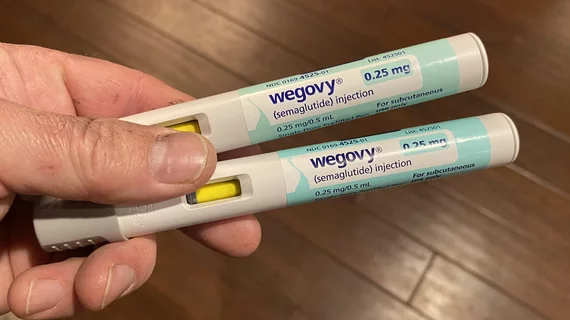Novo Nordisk withdraws FDA application to expand use of weight loss drug
Danish pharmaceutical company Novo Nordisk is withdrawing its application with the U.S. Food and Drug Administration (FDA) to expand the usage of its Wegovy drug, an injectable semaglutide used for weight loss.
The drug is similar to Ozempic, also made by Novo Nordisk, which is an injectable semaglutide used to treat type-2 diabetes.
The company said the decision to halt expanded labeling for Wegovy is temporary.
“Based on interactions with the FDA, Novo Nordisk has decided to withdraw the file and expects to resubmit the file in the beginning of 2025 with additional relevant data, including data from the once-weekly injectable semaglutide 1.0 mg kidney outcomes trial, FLOW,” Novo Nordisk said in in its Q2 2024 financial report.
In the report, the company said the drug has been approved for use in China as well as Europe. It also said it had concluded phase 3 trials using oral semaglutide in people to treat obesity. That data could be used to further expand labeling for oral use in markets globally.
Novo Nordisk said the company has seen 25% this year alone, largely thanks to Ozempic and Wegovy.
Currently, both Ozempic and Wegovy are approved in the U.S for the management of chronic or short-term obesity. However, labeling does not currently permit use of Wegovy for those with heart failure.
While trials have shown promising results, Novo Nordisk will ultimately need to re-file with the FDA to get Wegovy approved for use with heart failure patients.

